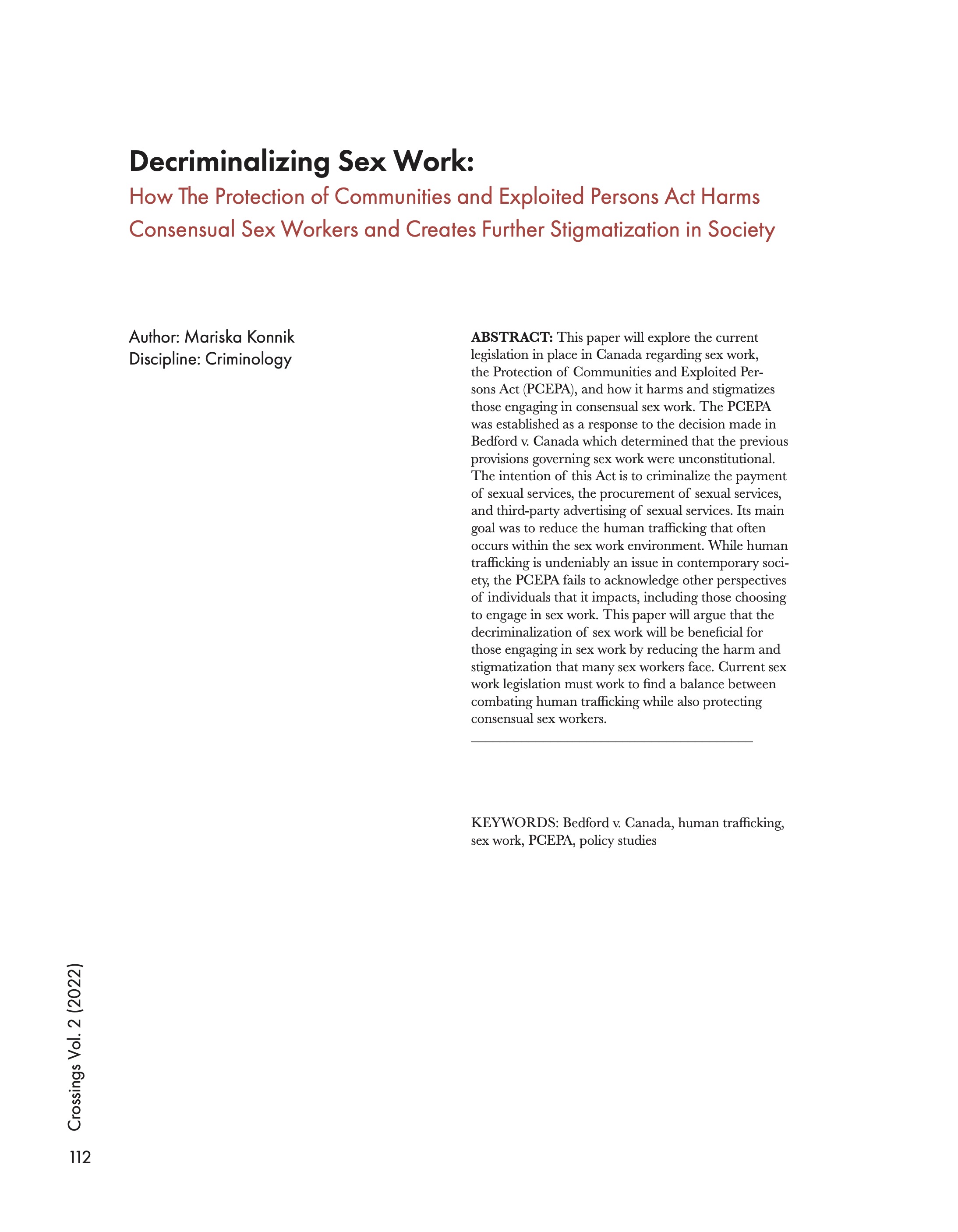Decriminalizing Sex Work: How The Protection of Communities and Exploited Persons Act Harms Consensual Sex Workers and Creates Further Stigmatization in Society
DOI:
https://doi.org/10.29173/crossings79Keywords:
sex work, PCEPA, legislation, Bedford v. Canada, human traffickingAbstract
This paper will explore the current legislation in place in Canada regarding sex work, the Protection of Communities and Exploited Persons Act (PCEPA), and how it harms and stigmatizes those engaging in consensual sex work. The PCEPA was established as a response to the decision made in Bedford v. Canada in that the previous provisions governing sex work were unconstitutional. The intention of this Act is to criminalize the payment of sexual services, the procurement of sexual services and third party advertising of sexual services. Its main goal was to reduce the human trafficking that often occurs within the sex work environment. While human trafficking is undeniably an issue in today’s society, the PCEPA fails to acknowledge other perspectives of individuals that it is impacting including those choosing to engage in sex work. Throughout this paper, topics such as the harms the PCEPA has had on sex work, the stigmatization and discourses that exist around sex work, and what decriminalization of sex work would look like will be explored and deconstructed. This paper will argue that a move towards decriminalization of sex work will be beneficial for those engaging in sex work and reduce the harms and stigmatization that many sex workers face and that finding a balance between combating human trafficking and protecting consensual sex workers is essential.

Downloads
Published
Issue
Section
License
Copyright (c) 2022 Mariska Konnik

This work is licensed under a Creative Commons Attribution 4.0 International License.

